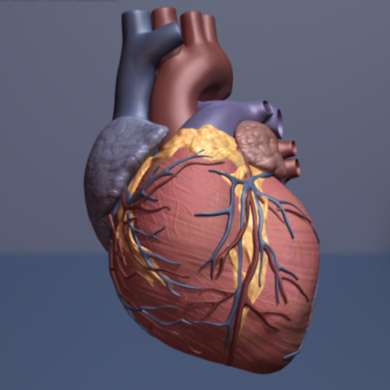Popular class of drugs reverse potentially harmful genetic changes from heart disease

Beta blockers are commonly used world-wide to treat a variety of cardiovascular conditions, such as arrhythmias and heart failure. Scientists have known for decades that the medications work by slowing the heart rate and reducing the force of contraction - lessening the burden of work carried out by the heart. However, new research out of York University has now shown that these drugs also reverse a number of potentially detrimental genetic changes associated with heart disease.
Using an experimental model of heart failure and next generation sequencing to get a snapshot of all of the RNA in the heart cells, the researchers identified the global gene expression changes that occur in heart failure. Then they explored what happened to this pattern of gene expression when beta blocker treatment was implemented, and what they found not only surprised them, but could have important ramifications for future treatments of heart disease.
"We discovered that beta blockers largely reverse the pathological pattern of gene expression observed in heart failure," said Faculty of Science Professor John McDermott, who led the research, along with York U collaborators Professor Gary Sweeney and Professor Jorg Grigull. "This could mean that the reversal or suppression of pathological gene expression by beta blockers is somehow protective against heart failure, but it's something we would need to look into further to understand how individual genes function in the heart."
Interestingly, the study also found that some genes associated with the immune system were dysregulated in heart failure, supporting recent research that has suggested the immune system and inflammation are involved in heart disease.
About 600,000 Canadians are living with heart failure, and the disease is expected to rise as more people survive heart attacks and other heart conditions and continue to live longer.
McDermott and his team have identified genes that will be further explored for their potential use in diagnosis and treatment in heart failure.
The study, "Heart Failure and MEF2 Transcriptome Dynamics in Response to B-Blockers," was published today in Nature Scientific Reports.
More information: S. W. Tobin et al, Heart Failure and MEF2 Transcriptome Dynamics in Response to β-Blockers, Scientific Reports (2017). DOI: 10.1038/s41598-017-04762-x



















